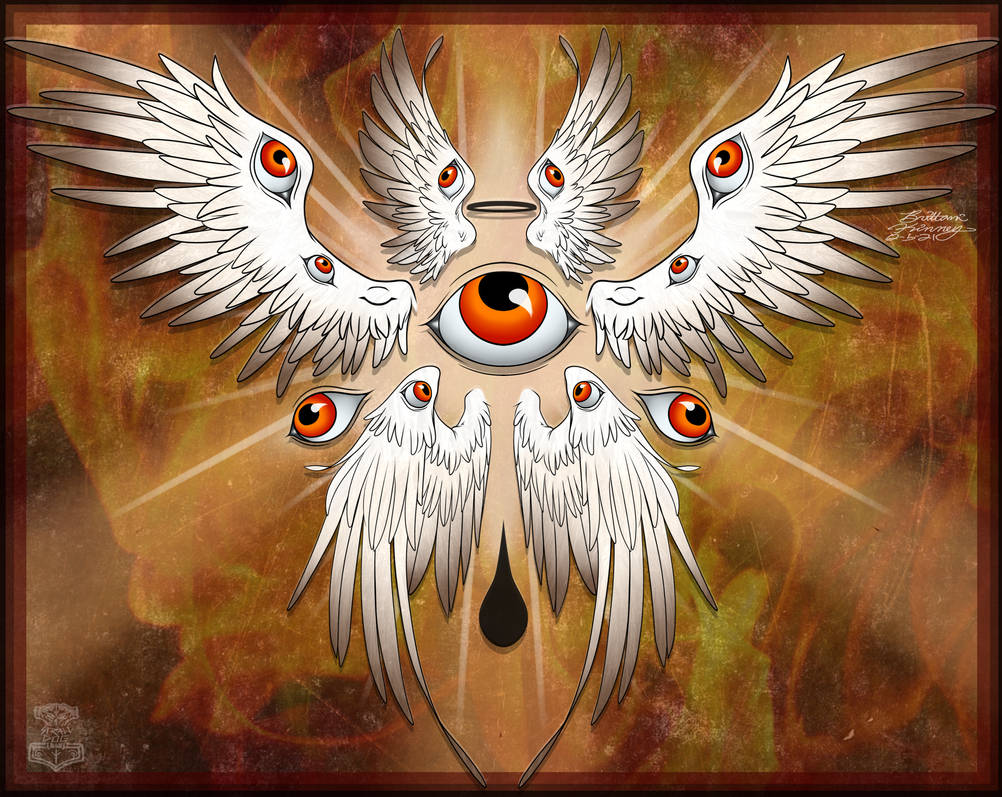When my American friends insist that feet and inches is just easier for them, I just nod in agreement and give them measurements using rods, chains and furlongs as well. If you’re going to go Imperial, you have to know 'em all. An acre is a chain by a furlong, totally logical as that would be 4x40 rods which is of course 43560 square feet. I guess it makes complete sense when your world is only a few furlongs across.
Most people who insist that imperial is better still have absolutely no idea how many spoons there are to a cup, how many cups to a gallon, how many inches to a mile, how many square yards to an acre.
As an American, anyone who claims the Imperial system is better about anything is lying or stubborn. An argument could be barely made for Fahrenheit and even then it’s not worth it.
Imperial is definitely worse, but the number of teaspoons or tablespoons to a cup (48 and 16) is useless information. Do you measure out 50 grams one gram at a time? Do you regularly use the fact that a kilometer is 100,000 cm?
Its pretty useful information when you’re converting recipes. Most measuring sets don’t come with a 1/8 cup or smaller, so it’s pretty helpful in the case that you end up with a small fraction of a cup.
I’ve worked in both, and if precision isn’t as important as accuracy feet and inches, and only feet and inches, can be easier. A third of a foot is 4 inches, yay whole numbers. A third of a meter is 33.33 cm. Way harder to measure and calculate on the fly. If anything I’m working on has measurements or tolerances under a quarter of an inch, I prefer metric.
And why is 1/3 m harder than 2/7 foot?
That’s not a common measurement. So like if someone wants to split something in half, or thirds or fourths it’s easy to measure on the fly with feet/in. How often do you hear someone say “I want to cut this board into 2/7th pieces”?
1/4 of a meter is not not a common measurement but 25 cm is. I think it’s just a matter of whichever system you’re used to, like discussing which language is better.
That being said, meters are just more precise, hence why american measurements are all defined by metric and then turned into feet, thumbs and dicklengths.
Well not a board but I often have situations where I need to divide by more than a third or a quarter.
Usually I use a calculator since I am on the pc anyway. But I don’t see the advantage over Imperial. I only have to shift my comma for conversion (which I need much more often than calculations) in Imperial I would go crazy
I mean, it really depends on your line of work. I work in physics and I often just say 1e-9 m instead of converting to nm. Or I’ll say 1e-4 in instead of .1 mil (a mil is one thousandth of an inch). So I just don’t care what unit system I work in when I do science related work, as long as the units are explicitly stated so that you don’t compare inches to mm on accident.
I have multiple relatives in construction though and they seem to like being able to just divide boards into thirds without dealing with decimals.
In the end though, now that everyone has calculators in their pockets, it’s all arbitrary. It’s so trivial to convert between different units and unit systems.
A third of a foot is 4 inches, yay whole numbers. A third of a meter is 33.33 cm.
Yeah, but a foot is about 30 centimeters. Easy to calculate half, a third, a fifth, a sixth of that. Yay. Whole numbers.
Not particularly hard to measure and calculate on the fly.
For what it’s worth, a chain is a literal standardized metal chain that surveyors used when physically staking out parcels. It’s not a unit normal people have ever used.
An acre is a chain by a furlong because a furlong is the distance you’d plow with an ox, and an acre is about the area you’d plow in a day. They derived the standard chain from that, much as metric chains are 20 meters or 30 meters. France used to use 10 meter chains, with 20cm links.
Normal people don’t measure things in chains, whether metric chains or imperial.
But what happens if you have a weak ox or a really fast ox? Then the distance would change, affecting the area, no?
The main issue is, over great distances, the chains will stretch so the measurements will end up varying.
Not really, since plotting land would be based off of the average Ox. That just means you’d be done with that field slightly sooner.
I mean I can respect that if they’ve just really known imperial forever. I just take issue with them confusing it being easier for them for that specific reason with it being intersubjectively better, which is dumb.
how about we all agree that the best system is american units with metric prefixes. After all it is obvious that it takes an hours to drive 318 kilofeet
What’s that in centimiles?
6,000 cm
See? This is why I like our system the best. It just got those nice even numbers. 318 kf = 6000 cm, easy peasy.
Sorry did the math wrong its 100,000,000 cm
How much is that in football fields?
american or european?
That makes more sense. I knew it was over 9000!
do you want d&D memes because this is how you get D&D memes
I love the smell of Kilofeet in the morning 😂
Technically the metric system is “the preferred system of weights and measures for United States trade and commerce” as per the Metric Conversion Act of 1975.
You’re just also allowed to use lbs and feet and stuff and most people do.
The versions of imperial measurements the US uses are even defined in terms of metric units, so they’re less a completely separate measurement system these days and more just a weird facade on top of metric, even.
Regan also never bothered to reinstate Imperial standards at the bureau of weights and measures (because it would have cost a small fortune). So our units are officially defined by the their metric counterpart. Legally speaking an inch is 2.54 centimeters.
Screw that, we’ll make them use Metric. BY FORCE!
Yep, that’s what Napoleon did…
You are being democratized, please do not resist.
How do you plan to do that when each of us is issued an assault rifle at birth and our military is 20x bigger than the next closest military? In other words, bring it on!
And in the sciences and drug dealing and the military, we use metric exclusively.
But for some idiotic reason, construction engineers often use imperial units and I have no idea why. Like buildings are built in pounds and feet and stuff, with half inch bolts and 2x4 (ish) lumber and half inch plywood. It’s idiotic.
I don’t generally defend imperial, but feet and inches are actually really useful in construction. Base 12 is easily divisible by 2, 4, and 3. You often need to divide architectural elements in thirds.
As a former structural engineer who lived on a Jobber 5 all day, that’s still pretty niche overall. Easier because it’s what your used to maybe, but outweighed by situations where it’s not. Try doing trig with fractions and then tell me imperial is better.
Does it matter whether you punch 3/8 or .375 into a calculator? Don’t tell me you calculate stuff by hand…
Trig is literally the math where you start dividing a circle in fractions and doing the math in base 360.
What the hell are you talking about?
I’m talking about trig using feet and inches. You know, rise, run, slope… Have you ever used trig outside of school? I don’t understand what you’re confused about.
right now i use it for waves and reflections. that’s all fractions and degrees. before it was machining and tbh for me that was faster to go to the book for the answers than calculate everything out.
truly trigonometry is a land of contrasts.
That might be somewhat useful if it was consistently applied, which it is not.
And it’s maybe useful for fractions, but how many feet are in a mile again? 5280? A square yard is what now… 1296 square inches?! Who the fuck is supposed to memorize all that?
What’s a 1/4 square yard in square inches?
That’s not easy, that’s putting the mental into mental arithmetic.
Again people making me defend imperial, I think metric is better.
I see this argument all the time, converting between these units is hard cause the numbers are weird. You have to stop thinking about imperial as a system, it’s not. No one should convert miles to feet, they are not intended to measure on the same scale.
None of the conversions are easy because imperial is just a random collection of units that were being used to measure different things.
Yeah, no one should be able to make a quick sanity check for things that span multiple powers.
-
“Hey Bob, we have 5000 of those 78 ft rails, that enough for the 100 mile railroad?”
-
“What do I look like, a fucking calculator?”
vs
-
“Hallo Heinz, how mäny hecto-liter do ve kneed für 1000 0.5l bottles of Bier?”
-
“20, boss.”
The amount of people going completely out of their way to die on their little cubic ft hill actually defending they’re incapable of easily and consistenly calculating units is just utterly ridiculous. “Nobody should be doing this!!!1!”
No, wait, the people in here telling people that “dozenal” is superior, but not realizing they’re not using a “dozenal” system at all, they’re just counting to twelve in decimal. Those are also making me question whether humans actually went to the moon…
Keep putting those words in my mouth. I’m not dieing on any hill, just trying to provide some context about why imperial is so weird. I still think metric is better.
You seem really upset about something that really doesn’t matter that much, are you okay?
Did I mention you specifically when I said „the amount of people…“? See.
And if it doesn’t matter much to you, why do you keep commenting? Nobody’s „making“ you defend anything. Are you okay?
-
“Why do they use the much more complicated system?” “Nobody actually knows.”
I’m not defending it, but it’s because 12 has more factors than 10
10 has 2 and 5
But 12 has 2,3,4,6
So 1/2 ft, 1/3 ft, 1/4ft and 1/6 ft all have a whole number of inches
Using a base12 system would only make sense if we all started counting in base12 too.
If enough people want that, i’d be down to start counting in base12, but i don’t think many people will lol.
if we all started counting in base12 too
You could start by calling it twelve instead of 12.
To keep things as simple/intuitive as they are today, we’d need two new symbols to represent the additional numbers. 0,1,2,3,4,5,6,7,8,9,§,∆,10
Of course it would be confusing as all hell for anyone alive today.
With hexadecimal we typically use a-f for the remaining numbers. We probably would use something like this for base 12:
012345679ab
Of course everyone knows the correct base to use is 2. Or as we call it, base 10.
Actually, come to think of it, it would always be 10 in the base that it is.
Yes, 10 can be any number if you change the base. Non-integer bases are weird, but a few (like base φ) see some use.
But it doesn’t use base 12. Take distance. Values smaller than 1/64" are measured using “thou”, “tenths”, and “millionths”, which are decimal multiples of 1/1000’, 1/10000", and 1/1000000" respectively.
Values between 1/64" and 1" are measured using dyadic rationals, i.e. base-2 fractions.
Above 1" it’s mostly base 12,except for the yard.
So all imperial measurements are factors of 12 apart?
So 1/2 ft, 1/3 ft, 1/4ft and 1/6 ft all have a whole number of inches
The same is true if you start with 300 mm instead of 1 foot.
Though dozenal numbers with a corresponding dozenal metric system would be very convenient, if you ignore the enormous cost of switching.
Wait now, why would this matter? Decimal doesn’t need full factors?
It makes it easier to divvy up into groups: halves, thirds, quarters, sixths (vs. just halves and fifths). Makes doing math easier in the head (fewer digits, checking for divisibility are the big ones).
Some info (warning: they are trying to convince you it is better than decimal, so you are not going to get a balanced argument there): https://dozenal.org/drupal/sites_bck/default/files/DSA-DozenalFAQs_0.pdf
Also, on the practical level, I have a specific mark to go to for 1/4". 1/4cm involves me guestimating the middle between two mm marks and just deciding that that’s middle enough. Small errors like this can actually add up really fast in something like woodworking
Okay, so why inches divided into 8ths?
And why are there 16 cups in a gallon, 15-and-some tablespoons in a cup and 3 teaspoons in a tablespoon?
Better make it 12 tablespoons in a cup and 12 cups in a gallon, then!And why are there 14 pounds in a stone and 16 ounce in a pound?
The imperial system does not use dozenal.
It uses a clusterfuck of bases because it’s actually a clusterfuck of measuring systems in a really big trenchcoat
Those aliens have 3 fingers. A decimal system to them is like a system based on 14, 196, 2744, 38416, … would be like to us - probably worse than US Customary
14, 196, 2744, 38416, … would be like to us - probably worse than US Customary
I mean if they had a base 14 numerical system then a base 14 measurement system would make perfect sense.
Contrary to that, the US does use a decimal system for numbers while the various units in the US customary system do not have any common base.humans have used base 8 count the gaps between your fingers, base 12 count the joints on 4 fingers with your thumb, and base 26 by using lots of body parts.
Number of fingers doesn’t have to dictate their number system. If they’re using a decimal based number system, then a decimal based measurement system is still the logical choice.
It partially does, the percentage of languages that use base 10 is nearly 100 and most that don’t use base 5 or 20… Sure there’s others (60 being the main one that still has an effect on most people’s lives) but they’re vanishingly uncommon
It does though. Base 10 is entirely due to humans having 10 fingers.
deleted by creator
Base 12 is not organically common, it’s incredibly rare even with the modern counting systems we’ve discovered…
The frequency of emergences (based on language families that use them) are: 4 ~1 time, 5 ~4 times, 6 ~3 times, 8 ~2 times, 10 ?? times, 12 ~3 times, 15 ~1 time, 20 ~9 times, 20+5 ~2 times, 23 ~1 time, 24 ~1 time, 27 ~1-2 times, 32 ~1 time, 60 ~2 times
deleted by creator
If we had 8 fingers, or 3 fingers, or 15 fingers, we would still be using base 10. It’s just that the value of “10” would be different each time
Took me a bit but indeed. I love this fact now
It’s the classic ‘there are 10 types of people…’ joke, but for a number system other than binary
Yes but (1) that isn’t the only base system humans use and (2) aliens could use a base system entirely divorced from their body parts. So number of fingers doesn’t have to dictate which base system is used.
They have 3 fingers on each hand and 2 toes on each foot. 10 total.
No, the problem with the imperial system is not what number it’s based on. The problem is that it’s not based on any number. A coherent base 14 system would be easier to use than the madness that is imperial.
There’s no good way to predict what base they’d actually use for their numbers, but there’s definitely nothing about 10 that makes it an obvious choice for an inter-species standard line the comic implies.
3, 6 or 12 would be overwhelmingly likely though, inferring from all documented human language families
Silly Americans, you could be measuring your winnies in GIGAMETERS and yet decide to keep using the kings thumb as a reference for it*
Me with a 1.0x10^-11 GIGAMETER weenie: 😎
deleted by creator
Man I love this comic. Glad to see it on Lemmy!
One of his books explains it with 3 fingers on each hand and 2 toes on each foot - so a base-10 system makes vague sense for those beings.
deleted by creator
It’s not that a system based on base 6 would be strange. That’d be a logical system, too. Just as any other system that consistently uses a particular base.
However, a system that uses numbers of base whatever but then proceeds to jump from one unit to the next one in completely arbitrarily sized steps such as 3; 22; 10; 8; 3 is illogical in any base.
Mostly because it’s very easy to make calculation on base 10. If i ask you to tell me how many millimeters are in 5.7 meters you could probably reply easily without a calculator. You probably wouldn’t do it as easily if it wasn’t base 10
We define 1000 mm as one meter as we are base 10 centric. If we live in a base 8 world, we would have define 8x8x8 mm as one metre and the answer to 5.7 m base 8 would be 5700mm base 8 too
It’s not fundamentally easier to do calculations in base 10. It’s only easier for us because that’s what we learn as children.
If our number system was based on a superior base, like dozenal or senary, we would be able to do calculations on that base easily and would find working in tens awkward.
I disagree. Base 10 is innately more intuitive because you move a decimal to shift between orders of magnitude.
That’s true for all bases.
You disagree because you don’t understand how number bases work.
this is one of the most confidently incorrect answers ive ever read. well done!
Because it’s intuitive. Calculating orders of magnitude is literally just a matter adding or removing significant digits.
That’s literally the same way with any other base. We just defined orders of magnitudes to be multiples of 10 because we use base 10. We could just as well have used other multiples.
Base 12 is way more logical than base 10, I bet aliens would think we’re stupid for counting in base 10 just because we have 10 fingers, my opinion on this is infallible fight me
Base 12 is as arbitrary as base 10 and we don’t know what aliens would think nor should we care. Base 16 makes more sense because it is 2x2x2x2 instead of 2x2x3
A base based on 2^x makes the most sense since it’s easy to do conversions between bases that match that template. So base 2, 4, 8, 16, 32, etc. The limit would just be how many symbols can be easily remembered and instantly recognizable (need 32 symbols for base 32).
why is 12 better
12 is more divisible than 10. 10 can only be cut into 5’s and 2’s, 12 has 2, 3, 4, and 6.
Similar reason why 360 deg is a full circle and time is kept in 12s and 60s.
but 10 exponentially speaking is more sound 10 100 1000 10000 100000 etc
That’s incorrect. Any base system has the same property. For base 12, we would just have two extra digits, and we would be counting powers of 12 instead of powers of 10. Let’s say those extra digits are X for ten and Y for 11. We would write numbers like so (starting with zero and incrementing by one): 0, 1, 2, 3, 4, 5, 6, 7, 8, 9, X, Y, 10, 11, 12, …, 18, 19, 1X, 1Y, 20, 21, …, 29, 2X, 2Y, 30, …
For example, in base 10, a number 265 means we have 10² twice and 10¹ six times and 10⁰ five times (100 + 100 + 10 + 10 + 10 + 10 + 10 + 10 + 1 + 1 + 1 + 1 + 1).
Same number in base 12 has 12² once and 12¹ ten times and 12⁰ once (144 + 12 + 12 + 12 + 12 + 12 + 12 + 12 + 12 + 12 + 12 + 1).
A “round” four-digit number in base ten is written as 1000 (written in base twelve as 6Y4). If we subtract one, we get a three-digit string of nines (highest single digit): 1000 - 1 = 999 (written in base twelve as 6Y3).
A “round” four-digit number in base twelve is written as 1000 (written in base ten as 1728). If we subtract one, we get a three-digit string of Ys (highest single digit): 1000 - 1 = YYY (written in base ten as 1727).
I hope this shows you how there’s symmetry between the bases and there is nothing special about base 10 other than we’re familiar with it. If we were familiar with base 12, the “round” numbers for us would be (writing in base 10 here): 12, 144, 1728, … which we would be writing as 10, 100, 1000, …
Works with base 12 too, look: 10 100 1000 10000 100000 etc.
That would be the case for any base system. Do you know what a base system is? It’s basically how many values before you go to the next place. So base 2, or binary, is 0 and 1. Counting goes 0, 1, 10, 11, 100, … Base 16 is generally 0-F. Counting goes 0, 1, 2, 3, 4, 5, 6, 7, 8, 9, A, B, C, D, E, F, 10, 11, 12, 13, 14, 15, 16, 17, 18, 19, 1A, 1B, 1C, 1D, 1E, 1F, 20,…
The way base 12 would work is that you’d add 2 characters and you would write “12” as 10. Which looks really confusing because we’re all used to base 10. If you were then to do 1010 in base 12 (so in base10 that would be 1212) you’d get 100 (144 in base10) so this still stands whatever base you use.
True! And that’s probably why we use base 10, also we have 10 fingers. But that’s usually the argument for base 12. I think we do ok using it in just certain cases, like time and inches.
Actually this works fine in base 12 too! See my other comment for a more in-depth explanationz
The Egyptians and Babylonians counted in base 12. They did so by counting each section of the fingers on one hand with their thumb (4 fingers, 3 sections each = 12).
From what I understand they used base 60. They counted each finger section on one hand with each of the fingers on the other (5x12)
I have noticed old people in India who are used to counting like that as well.
Or heximal/senary. Arguably imperial is already duodecimal/hexadecimal/sexagesimal for the fractional parts.
Why use decimals when reducing fractions is SO EASY
I’m just gonna drop this here: https://iquilezles.org/articles/floatingbar/
When I find a wood working video on YouTube from the states it blows my mind how anyone can not just adopt metric “This is 5” 4/57 and we need to cut it to 5” 5/45 and a half” bzzzzzzz.
deleted by creator
I may be biased, but I think it kinda makes sense. All the fractions are really just powers of two:
One half
One quarter
One eighth
One sixteenth
One thirtysecond
etc.Oh yeah, totally makes more sense to say “it’s 3/64ths of an inch” than “it’s 2 millimeters.” Completely reasonable.
So reasonable, in fact, that in most manufacturing that still uses imperial measurements they long ago abandoned fractions and moved to decimal inches.
Which leads to unholy abominations such as the wood shop sending over “cut off 3/64ths” and the metal shop cutting off 0.046875".
I feel like this is my wheel house.
Removed by mod
deleted by creator
deleted by creator
I can’t wait to see their new TV show that’s airing in
September^(a few days), I hope it’s gonna be good 😄🍿August 9th, it’s merely a few planetary rotations away. 👽
Oh right, my mistake. I got the episode number/order wrong, the last episode of the season, e10 will air 27. September.
Now I won’t be able to fall in a hallucinating unconscious state when the planet turns away from the nearest star until the first episode airs, because my body is producing too much of those chemicals that prevent it… 😵💫😅
👽 - Perhaps consuming units of recreational mild poison can assist with that condition. Also, avoid the jitter water.
WHAT. HOLY SHIT. YES.
https://m.imdb.com/title/tt14914464/
August 9 on Apple TV+
There are so many baseless radixals in the comments.
Every time anyone talks about this, I feel obligated to inform them: there’s also a counting system that’s not based on ten, and it’s way superior. Do people know about it? Most don’t. The Wikipedia page stupidly calls it the “ten-plus-two” system, and there have been heated arguments there with the dumbasses who refuse to change it to the logical name. That’s how stupidly-biased people are towards the ten-based system.
You make a “metric” measurement system based on 12-based counting and then everyone wins. Everyone. It’ll never happen of course.
You’re not really helping your case by omitting the real name (but complaining about the Wikipedia name) and sharing why it’s superior.
I loosely tried to find it and didn’t find anything explicitly named 10+2 or “ten-plus-two”.
deleted by creator
Wikipedia seems to be pretty clear about the naming. You must be fun at parties!
Sumerians picked base 60, which is the minimum common multiple of “1, 2, 3, 4, 5, 6”, which is far superior to either 10 (MCM of only “1, 2, 5”), or 12 (MCM of “1, 2, 3, 4”).
But the average people had trouble counting to 60, so they used their fingers… which happen to be 10, which happens to be 1/6 of 60… and they called it “good enough”.
We still use base 60 for minutes and seconds, base 6*60 (360) for angular degrees, and base 2*12 (24) for hours… which is at least something.
Base 60 isn’t superior or even reasonable for human mathematical operations. It’s not like 5 is as important of a number as 6. If we all had 6 fingers, 5 would be treated in the same way that 7 is.
Base 60 is both superior and reasonable: it’s easily divisible by the first 6 integers. There is a reason we still use it all the time (pun intended).
Base 420 would be the next one, if human brains didn’t struggle with holding 7 separate items at once in short term operative memory.
420 lol !trees@somewhere.lemmy
I don’t think you understand. You want a small base if you want to do everyday human operations. I guess it might be hard for a lot of people to comprehend because you’re so used to thinking in tens, that you don’t realize that if you stopped dividing 60 by 10 automatically, “60” would not be a digestible base number.
Furthermore, “using 60 a lot” is not the same as counting base-60. Base-60 means there is no ten to fall back on. 60 would be your “small group” number, and that would be that.
Let’s say I counted: 0 1 2 3 4 5 6 7 8 9 a b c d e f g h i j k l m n o p q r s t u v w x y A B C D E F G H I J K L M N O P Q R S T U V W X Y 10 11 12 13…
2*u=10, u0/3=a0, A/7=5
No need to “divide by 10”, and we even have enough symbols already. All it would take is getting used to… just like what we did for years over and over in primary.
For “everyday human operations” you can just count: 0 5 a f k p u A F K P U 10… or 0 6 c i o u B H N T 10… or 0 a k u A K U 10… or 0 c o B N 10… or 0 f K 10… and so on. Notice how division by any multiple of 2, 3, 5, becomes much easier:
1/2=0.u, 1/3=0.f, 1/4=0.k, 1/5=0.c, 1/60=0.0a
Look at what happens with fractions:
2/3=0.K, 3/5=0.B, 5/12=0.p
-facepalm-
“Not learning your base 60 division tables… paddle to the face”
Going back all the way to your original comment. Counting to 60 is not the same as counting base-60, unlike this comment and a ton of your replies. 60 minutes in an hour isn’t base-60 counting. Unless you write one sixty as “10” and two sixties as “20”, you are not counting base-60. Because the tens digit means one group— no matter the size— and the zero after it means none extra. For the love of god please read a book.


















